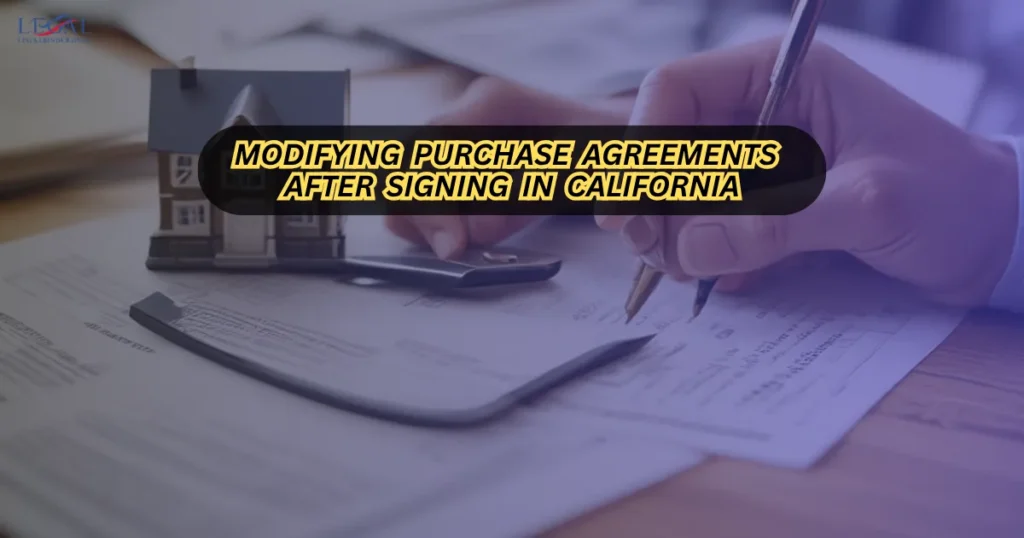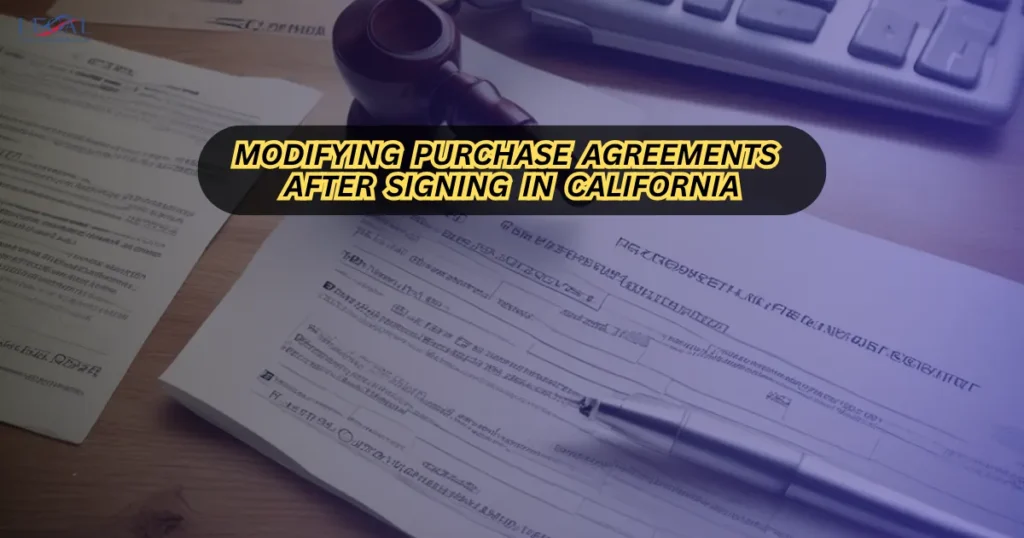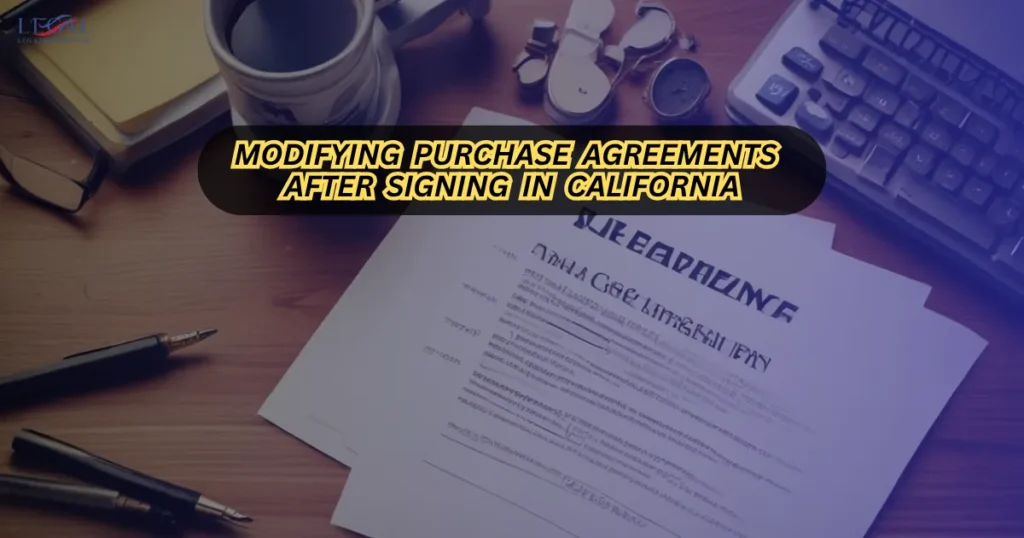Physical Address
304 North Cardinal St.
Dorchester Center, MA 02124
Physical Address
304 North Cardinal St.
Dorchester Center, MA 02124

Modifying purchase agreements after signing in California is a delicate process that can protect your investment or, if mishandled, jeopardize the entire transaction. Whether you’re buying your dream home, selling a valuable property, or investing in commercial real estate, there are times when changes simply must be made after both parties have signed on the dotted line. Understanding how this process works—and following state legal rules—is the key to making adjustments without breaking the deal.

Imagine this: you’ve signed your California purchase agreement, and inspections reveal a serious roof issue. The closing date is set, but now repair costs are looming. You don’t want to cancel the deal—you just want to adjust the terms. Without knowing the correct legal steps, your request could be denied or misinterpreted, leading to conflict. This guide will give you clear, actionable advice on safely and effectively modifying purchase agreements after signing in California so you can achieve a positive deal outcome.
For more real estate contract insights, visit our homepage or explore our California Property Agreements Resource Center.
A purchase agreement is a legally binding contract outlining the terms of a real estate sale. In California, such agreements often follow standardized forms provided by the California Association of Realtors (CAR) and must comply with specific state laws.
Under California contract law, any modification to a signed purchase agreement must be agreed to in writing by all parties. Oral changes are generally unenforceable for real estate transactions due to the Statute of Frauds.
Clearly define why a modification is necessary—repair costs, timeline changes, new financing terms, etc.
Check for clauses that address amendments and allowable changes.
California real estate professionals often use CAR forms for amendments. Clearly outline the changes and reference the original agreement.
Both parties must sign for the changes to take effect.
Ensures the escrow process aligns with the amended terms.

Can I change the purchase price after signing?Yes, but both buyer and seller must agree in writing, and lenders must approve if financing is involved.Do modifications require a new contract?No, an addendum or amendment can be attached to the original agreement.What if one party refuses to sign the modification?The original agreement remains in effect unless all parties consent to changes.Are electronic signatures valid in California?Yes, electronic signatures are generally valid under California’s Uniform Electronic Transactions Act.

Successfully handling modifying purchase agreements after signing in California requires knowledge of state laws, clear communication, and proper documentation. By following a structured process and involving all relevant parties, you can adapt to new circumstances without jeopardizing your transaction.
Whether you’re addressing an unexpected repair, adjusting timelines, or refining financing terms, the right approach can turn potential deal-breakers into collaborative solutions that ensure a positive outcome for both sides.
For more California real estate contract guidance, visit our home page today.